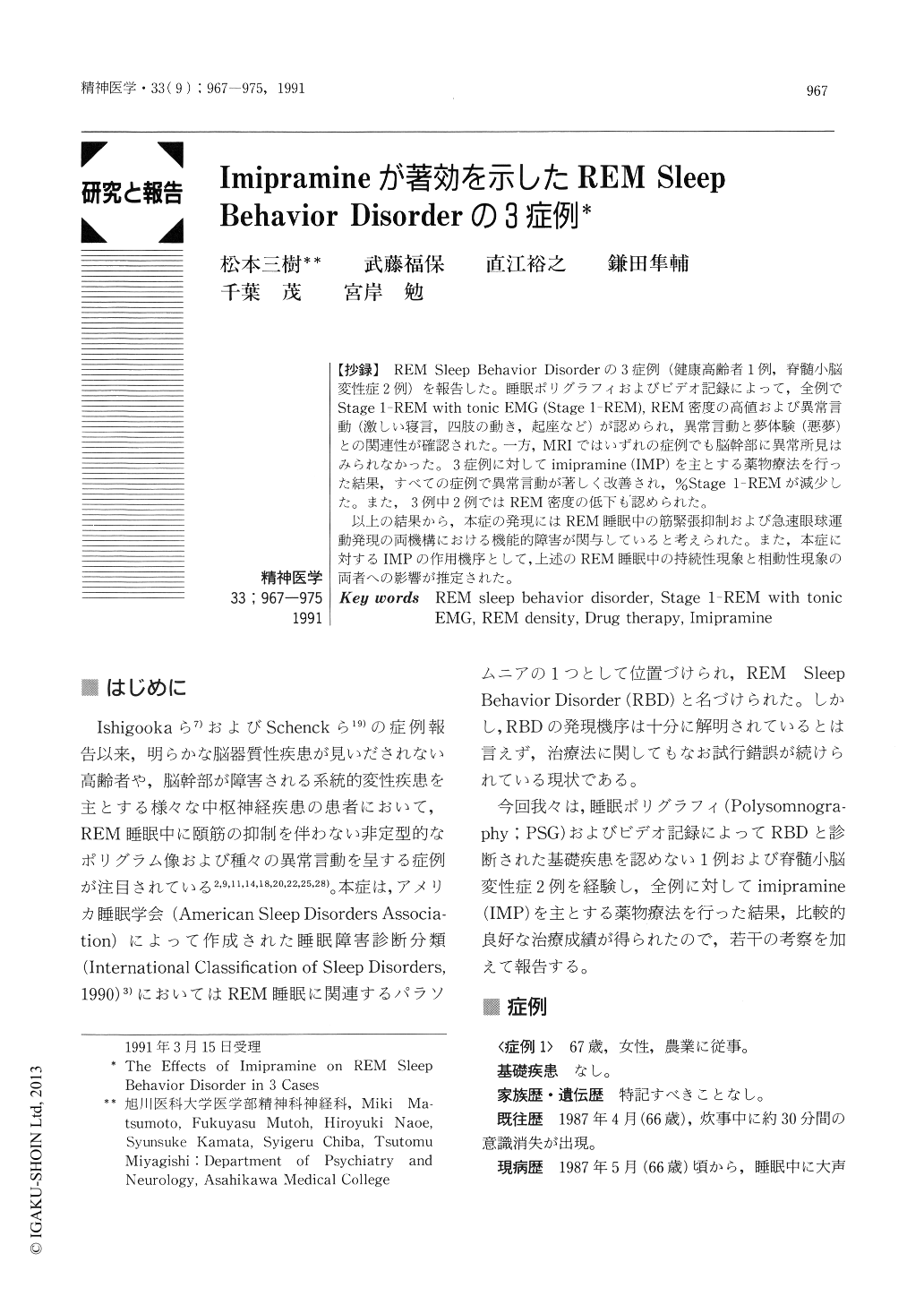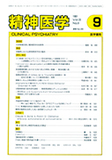Japanese
English
- 有料閲覧
- Abstract 文献概要
- 1ページ目 Look Inside
【抄録】 REM Sleep Behavior Disorderの3症例(健康高齢者1例,脊髄小脳変性症2例)を報告した。睡眠ポリグラフィおよびビデオ記録によって,全例でStage 1-REM with tonic EMG(Stage 1-REM),REM密度の高値および異常言動(激しい寝言,四肢の動き,起座など)が認められ,異常言動と夢体験(悪夢)との関連性が確認された。一方,MRIではいずれの症例でも脳幹部に異常所見はみられなかった。3症例に対してimipramine(IMP)を主とする薬物療法を行った結果,すべての症例で異常言動が著しく改善され,%Stage 1-REMが減少した。また,3例中2例ではREM密度の低下も認められた。
以上の結果から,本症の発現にはREM睡眠中の筋緊張抑制および急速眼球運動発現の両機構における機能的障害が関与していると考えられた。また,本症に対するIMPの作用機序として,上述のREM睡眠中の持続性現象と相動性現象の両者への影響が推定された。
To evaluate the effects of drug therapy on REM sleep behavior disorder (RBD), polysomno-graphic recordings with simultaneous video monitorings were made on three subjects. Case 1 was a healthy 67-year-old woman, case 2 was a 56-year-old woman with spinocerebellar degeneration, and case 3 a 60-year-old woman with spinocerebellar degeneration.
Before the drug therapy, all the patients showed 2 to 4 episodes of abnormal sleep behavior (sleep talking and minor body movements, such as gesticulation, shaking of the arms or kicking) during REM sleep every night. These episodes were associated with “Stage 1-REM with tonic EMG (Stage 1-REM)”. The REM density and %Stage 1-REM were as follows : 27% and 11% in case 1,50% and 20% in case 2, and 40% and 8% in case 3.
For case 1, after no effect of clonazepam (CZP), 0.5 and 1.0 mg h.s., administration on RBD was observed, imipramine (IMP), 25 mg h.s., was added to the medication schedule. This resulted in a decrease in the incidence of RBD to about twice per week. For case 2, the administration of IMP 25 mg and butoctamide hydrogen succinate 600 mg at bedtime suppressed RBD. In case 3, IMP 25 mg also suppressed RBD. The final REM density and %Stage 1-REM were, respectively, 26% and 6% in case 1, 37% and 10% in case 2, and 21% and 4% in case 3.
Although the precise mechanism of RBD is still unknown, some investigators suggest that RBD is closely-related to REM sleep without atonia and a high REM density. In the present cases, especially in cases 2 and 3, IMP not only suppressed RBD but also reduced the REM density and % Stage 1-REM. Thus, the effects of IMP on RBD may be due to its decreasing the frequency of rapid eye movements and the percentage of Stage 1-REM during REM sleep.

Copyright © 1991, Igaku-Shoin Ltd. All rights reserved.


